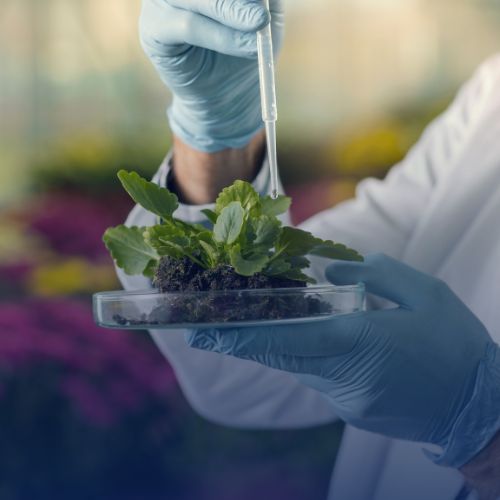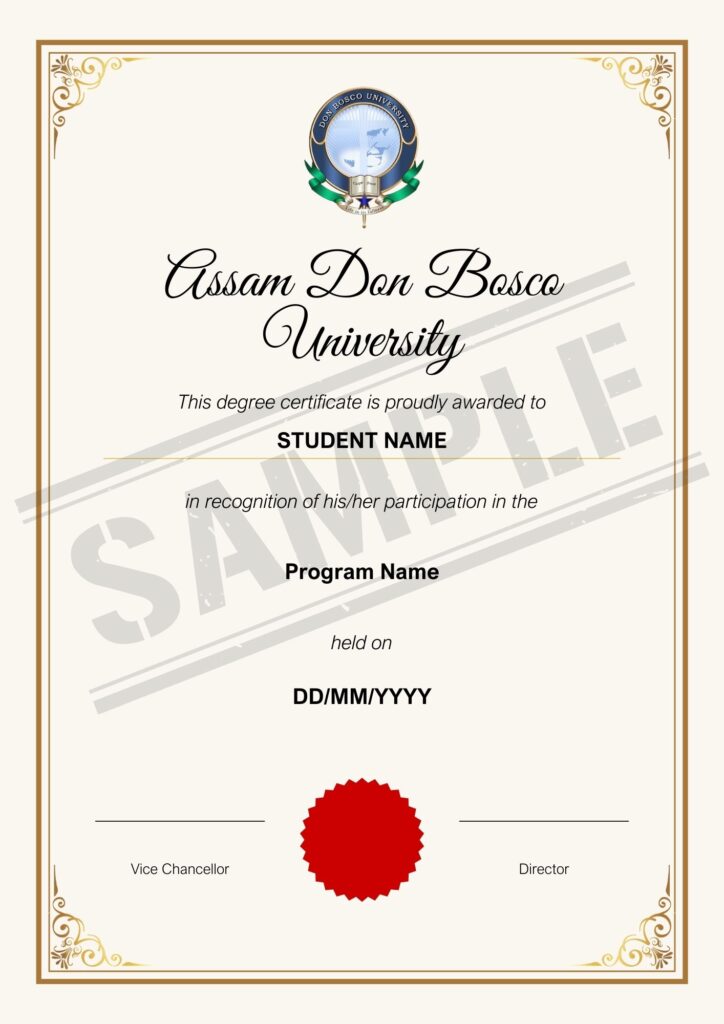Test Program
BSc in Botany
Duration: 03 Years
No of Seats: 40
BSc in Botany
A Bachelor of Science (BSc) in Botany is an undergraduate degree focused on the scientific study of plants, algae, and fungi. The program explores various aspects of plant biology, including their structure, growth, reproduction, metabolism, diseases, and ecological interactions. Students gain theoretical knowledge and practical skills through laboratory work, field studies, and research projects.

Program Highlights and Advantages
Discover our Degree Programs and begin an exciting educational journey

Emerging specializations
New-age specializations shaping tomorrow's business landscape

Robust Learning Model
550+ hours of video lectures to help you maximize your learning

Personalized Learning
Personalized learning through unique option of choice based credit system

Real World Projects
Real world projects & case studies to help you succeed in your domain
Program Overview & Structure
| Algae and Microbiology |
| Biomolecules and Cell Biology |
| Algae and Microbiology Lab |
| Biomolecules and Cell Biology Lab |
| English Communication |
| Atomic Structure, Bonding, General Organic Chemistry and Aliphatic Hydrocarbons |
| Animal Diversity |
| Atomic Structure, Bonding, General Organic Chemistry and Aliphatic Hydrocarbons Lab |
| Animal Diversity Lab |
| Mycology and Phytopathology |
| Archegoniate |
| Mycology and Phytopathology Lab |
| Archegoniate Lab |
| Environmental Studies |
| Chemical Energetics, Equilibria & Functional Organic Chemistry-1 |
| Environment and Public Health |
| Chemical Energetics, Equilibria & Functional Organic Chemistry-1 Lab |
| Environment and Public Health Lab |
Morphology and AnatomyEconomic BotanyGeneticsMorphology and Anatomy LabEconomic Botany LabGenetics LabNursery and Gardening/FloricultureInorganic Chemistry-I: Atomic Structure and Chemical BondingAquatic BiologyInorganic Chemistry-I: Atomic Structure and Chemical Bonding LabAquatic Biology Lab
| Molecular Biology |
| Plant Ecology and Phytogeography |
| Plant Systematics |
| Molecular Biology Lab |
| Plant Ecology and Phytogeography Lab |
| Plant Systematics Lab |
| Medicinal Botany/Ethnobotany |
| Physical Chemistry- I: State of Matter and Ionic Equilibrium |
| Environment and Public Health |
| Physical Chemistry- I: State of Matter and Ionic Equilibrium Lab |
| Environment and Public Health Lab |
| Reproductive Biology of Angiosperms |
| Plant Physiology |
| Reproductive Biology of Angiosperms Lab |
| Plant Physiology Lab |
| Analytical Techniques in Plant Sciences |
| Analytical Techniques in Plant Sciences Lab |
| Bioinformatics |
| Bioinformatics Lab |
| Plant Breeding |
| Plant Breeding Lab |
| Natural Resource Management |
| Natural Resource Management Lab |
| Plant Metabolism |
| Plant Biotechnology |
| Plant Metabolism Lab |
| Plant Biotechnology Lab |
| Horticultural Practices and Post-Harvest Technology |
| Horticultural Practices and Post-Harvest Technology Lab |
| Research Methodology |
| Research Methodology Lab |
| Industrial and Environmental Microbiology |
| Industrial and Environmental Microbiology Lab |
| Biostatistics |
| Biostatistics Lab |
Degree offered by us

Eligibility
Grade /Marks requirement from qualifying examinations
Graduation in any area of Life Sciences with 60% of the aggregate and Chemistry as a subject. Those who have a background in Biochemistry at Bachelor’s Degree will have an advantage.
Provisional Admission
Applicants who have not yet obtained their Bachelor’s Degree also may apply for admission. Such candidates would be offered provisional admission until they furnish evidence of fulfilling the eligibility criterion stated in (1) above within 3 months of the commencement of the programme.
Career Impact
How We Help You Build Your Dream Career
Industry Mentors
Personalized guidance from career experts throughout the academic journey.
Placement Drives
Connect with employers & explore opportunities through interactive online events.
Master Classes
Access comprehensive help for resume building, interview preparation and job placement.
Profile Building
Build a credible professional profile by showcasing your skills through hands-on projects.
F.A.Q.
The university offers a range of undergraduate, graduate, and doctoral programs across disciplines including engineering, science, arts, business, and health sciences. Each program has its own specific requirements and areas of focus.
You can apply online through our university’s admissions portal. Complete the application form, submit the required documents (such as transcripts, test scores, and recommendation letters), and pay the application fee. Detailed instructions are available on our admissions webpage.
Admission requirements vary by program. Typically, undergraduate programs require a high school diploma and specific academic credentials, while graduate programs may require a bachelor’s degree in a related field, relevant test scores, and work experience. Be sure to review the specific requirements for the program to which you are applying.
Yes, the university offers a variety of scholarships and financial aid programs based on academic merit, financial need, and other criteria. Information about available scholarships and how to apply is available on the university’s financial aid webpage.
Application deadlines vary depending on the program and the intake period (e.g., fall, spring). Be sure to check the program’s admissions page for specific deadlines.
